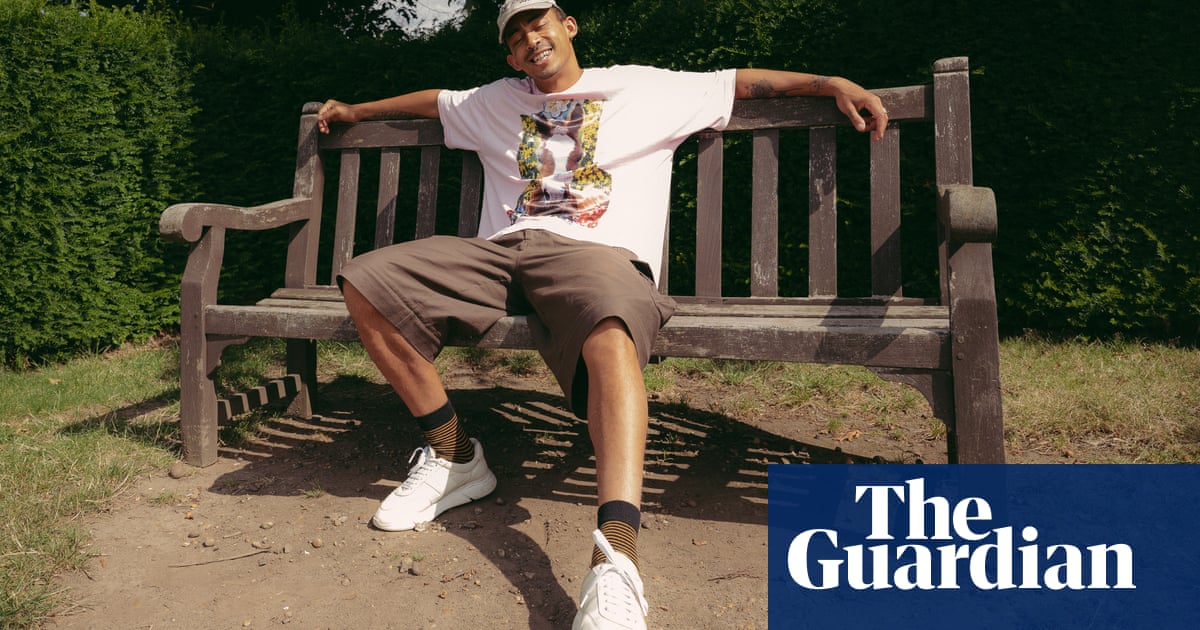Jordan Stephens’ energetic and unguarded memoir brings to mind two classic pop songs: Jimmy Ruffin’s What Becomes of the Broken Hearted and Bob and Marcia’s Young, Gifted and Black. Answering to the latter description can be costly, Stephens shows. The small print on the price tag of the fame that comes alongside it reads: you will develop an entitled and irresistible “desire to fuck everything”, with lasting damage to your mental health.
In the past, Stephens has been open about his struggles as part of his online campaign #IAMWHOLE, aimed at tackling the stigma of mental illness and ADHD, with which he was diagnosed in childhood. Now the musician and actor has written a memoir whose title has the same initials, but here they don’t stand for “attention deficit hyperactivity disorder”. Instead, A is for avoidance (of responsibility), D is for drugs (“cocaine cushioned the chaos” of life), H for heartbreak (the book’s animating story), and D for dogs (his is special, “incredibly chill. Could be Buddhist”).
It is a portrait of the artist as a struggling, solipsistic young man who grew up in the full glare of public attention as one half of the exuberant teenage rap duo Rizzle Kicks. The early highs of fandom and a debut album selling more than 600,000 copies recede as he slides into adulthood, enduring wounding conflicts with family and friends, and too often “trying desperately to follow a group of total strangers to a moderately famous person’s house. Just to do more drugs. And entertain empty possibilities.”
Stephens lets us know early on that he’s up for the ugly and bruising task of autobiographical self-reflection. He’s “going to start in the mud and work up”. People in his life may be hurt by the revelations, but collateral damage comes with the territory and besides, he says, “Shit had to change. I had to grow up and confront the gods.”
We soon discover that the author, unlike his dog, is not chill. Are you kidding? He is grieving the loss of his girlfriend Chloe, who broke up with him when he confessed to an infidelity, a meaningless one-night stand. He can’t fathom Chloe’s rejection of him, mostly because he mistakes the limits of his mind for the limits of the world. Perhaps his therapist can help, but Stephens is unsure. He recalls his first session: “‘Who am I to you right now?’ She would say. ‘My therapist?’ I would say. ‘Am I?’ She would say. Felt like wasted time. Telling my therapist that I think she’s my therapist.’”
But as things unfold, it becomes clear the former popstar is in search of the adult in the room, and is lucid enough to realise that it ain’t him. Months later, he still ruminates on Chloe. Why can’t she see his transgression as the one-off mistake of a modern “fuck boy”, and that he deserves compassion?
To Stephens’ credit, he recognises the need to work on his emotional intelligence, and at its best this book, with its appeal to confused young men like himself, serves as a welcome antidote to the misogynistic influence of Andrew Tate (who equates sexism with realism). In one incident, he skewers a homophobe in the gym who, eyeing the women, whispers to him: “Jesus loves pussy!” “So I asked him why God put the male G-spot up the arse. He froze. Wheel of death on his forehead.”
Stephens’ modus operandi seems to be provocation. His voice on the page is close to his spoken voice. The book is composed of sharp sentences that beat to the nervous self-questioning rhythm of his ADHD. His prose is like that of a confident but flinty driver, expounding ideas that bounce around like pinballs, demanding his nervous travelling companion’s attention on a long and difficult journey.
Avoidance, Drugs, Heartbreak and Dogs is an entertaining ride, yet, by the end, despite Stephens’ candour, he still remains somewhat opaque. And what of the troubled artist’s search for love? Perhaps What Becomes of the Broken Hearted offers hope: “Nothing’s gonna stop me now / I’ll find a way somehow.”
